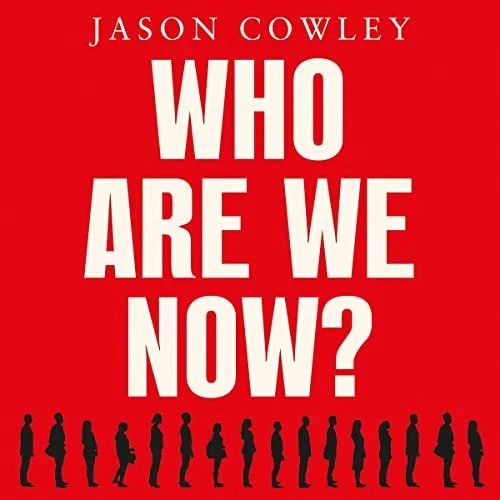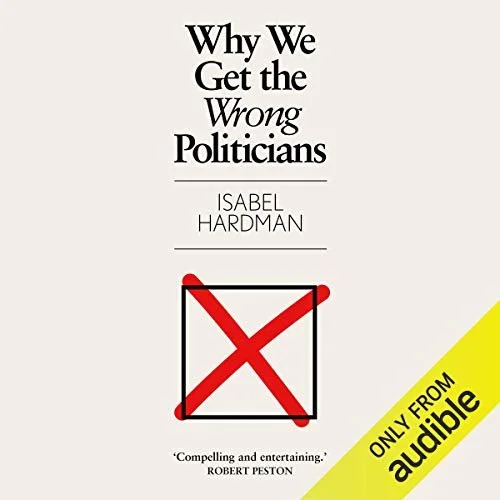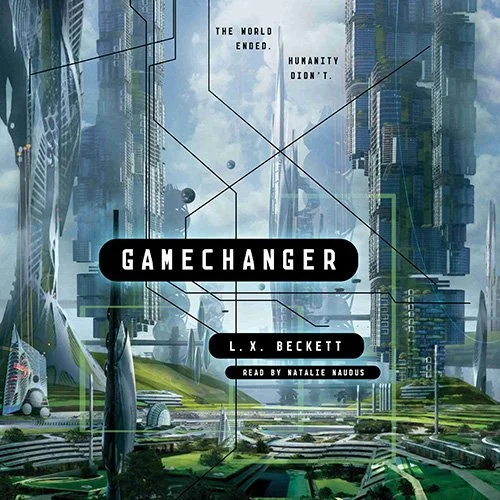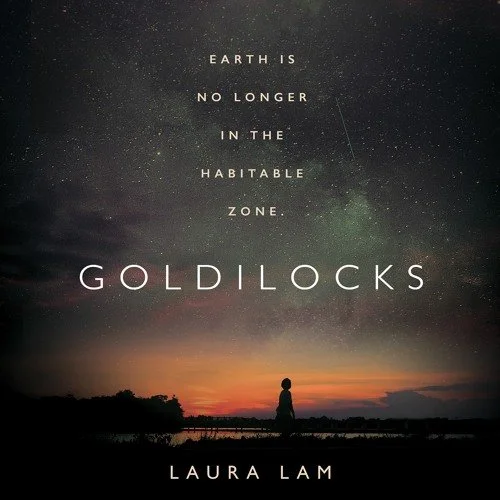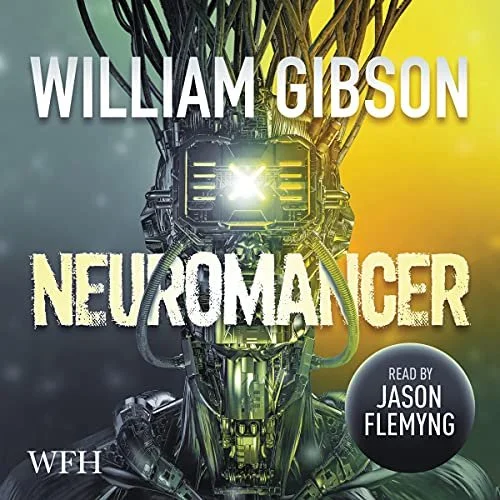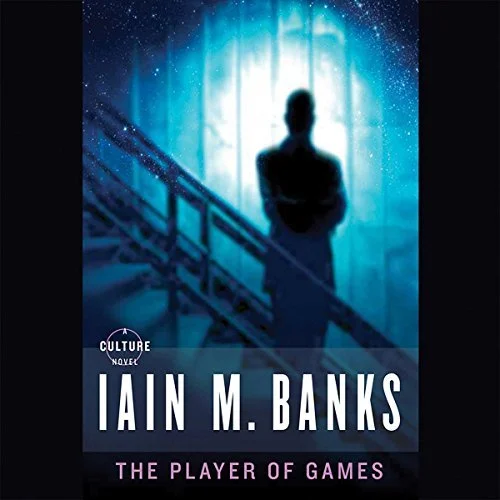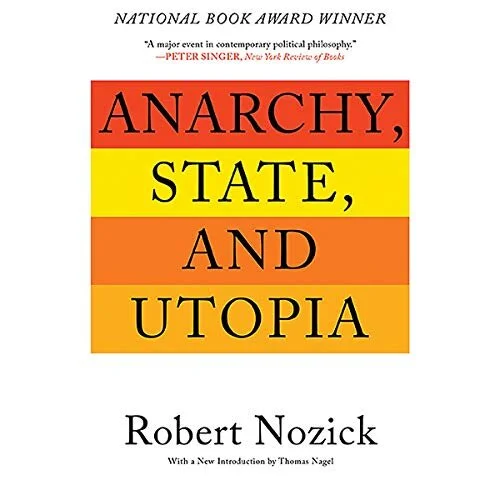I wonder if I am the only person who, whilst reading Joe Abercrombie’s new epic fantasy novel The Trouble With Peace, was reminded of Why Nations Fail, Daron Acemoglu and James A. Robinson’s seminal work on economic development.
The novel is about a society poised on the edge of the transformation into the type of modern industrial society that we would recognise. Factories are springing up, whilst canals are being dug. Farm labourers are going to work in mills, whilst cities are growing. All of which reminded me of Acemoglu and Robinson’s study of the history of this process in our world.
A new world of factories and mines
The Trouble With Peace is the second book in Abercrombie’s The Age of Madness Trilogy, which takes place in his First Law world that has been established in a previous trilogy and standalone books. The First Law is not a Medieval-eques fantasy setting like Middle Earth or Westeros. The Trouble With Peace is set in a world where kings don’t have absolute power and economic rivalries between nations are becoming more important than military ones. There are warrior kings, like Stour Nightfall, King of the Northmen, but this is no longer their world. Their power is waning, whilst the prestige of industrialists and inventors is growing.
The new world that is being born values skills with finance and commerce, rather than swords. Entrepreneurs like the ambitious Lady Savine dan Glokta are becoming more influential and powerful aristocrats are seeking business partnerships with industrialists and inventors to enhance their prestige, whereas in the past this prestige would have been won on the battlefield. Poor people are pressed into factory and mine work, rather than fieldwork.
The Trouble With Peace is mainly set in The Union, a monarchy that is built on alliances between nobles and regional governors. The Union is beginning to go through the industrial revolution and some of the most powerful writing in The Trouble With Peace is the description of the squalor and danger that the new industrial workers have to live in. Abercrombie vividly renders the callousness of industrialists and how cheap human life is to them.
Economic development as a source of dramatic conflict
Acemoglu and Robinson write about this transformation and the type of political institutions needed for it to be a success. It is the fight over the control of these institutions that is the conflict in Abercrombie’s novel.
The core of Acemoglu and Robinson’s argument is that government is needed to create healthy economic development through making markets inclusive, which is done via education, training, providing infrastructure and helping people start business. Acemoglu and Robinson refer to “inclusive institutions” (rule of law, independent courts, banking and finance systems, property rights, etc.) as the bedrock needed for a prosperous country.
This may sound like a poor source of conflict for an epic fantasy novel, but many times throughout history a revolution has been necessary to create inclusive institutions. The American Revolution is a good example of this. Revolutions are a great source of conflict for a novel and the main plot of The Trouble With Peace is such a revolution.
The Union and English history
In the United Kingdom (where I am writing from) the origins of the inclusive institutions that led to the industrial revolution can be traced to the political changes brought about by the English Civil War and the Glorious Revolution of the 17th century. In Abercrombie’s novel, The Union is at a similar turning point.
Like England at the time of the Glorious Revolution, The Union is a monarchy but power ultimately rests with a group of people and is not solely invested in an absolute monarch. The Union is governed by the Closed Council, a group of senior noblemen around the king who hold offices of state. This transition from absolute monarchy to group rule is the beginning of the process of creating inclusive institutions.
Acemoglu and Robinson identify two aspects of a society that is needed for inclusive institutions. They are “centralised government” and “pluralism”. Both of these began in England at the beginning of the Early Modern period, when King Henry VII disarmed the rebellious nobleman and created a bureaucracy around the king.
This centralised power allowed for a government to be created. It also created pluralism because with the loss of their arms the barons lost their military power and thus they had to attain power and influence through non-military means. This led to them pushing for more powers for parliament.
Liberal bourgeoisie revolution
The Trouble with Peace explores a similar process. King Orso, newly crowned king of The Union has centralised power in his Closed Council and we can see the beginnings of a modern form of government with ministers appointed to key roles such as Arch Lector. At the same time nobles in the larger Open Council, which can be seen as a proto-parliament, are pushing for more authority, which is the beginning of a pluralistic form of government.
The main plot of the novel follows a rebellion against Union King Orso by Leo dan Brock, aka the Young Lion, a regional governor and a popular soldier. He is supported by his entrepreneur wife, Lady Savine dan Glokta and members of the Open Council vying for more influence. Leo’s rebellion can be seen as a liberal bourgeoisie revolution, similar to the wave of revolutions that spread through Europe in 1848.
These liberal uprisings (I mean liberal in the John Locke sense of the word, not the Joe Biden sense) challenged the absolute authority of monarchs and sought to create more inclusive governments based on modern ideas of rights and liberty. Or at least they sought inclusiveness, rights and liberty for middle class industrialists. Although many of these revolutions ultimately failed and led to a conservative authoritarian backlash, they were a step towards creating more inclusive institutions and thus part of the journey towards our modern form of government.
The rise of the middle class
The rise of the middle classes, merchants and industrialists, is crucial to the story of the liberal bourgeoisie revolutions and to The Trouble with Peace. Acemoglu and Robinson in Why Nations Fail argue that the emergence of the merchant class is key to the move towards inclusive political institutions in England in the 17th Century.
The merchant class supported parliament in the English Civil War and Glorious Revolution as it was in their interest to get a more pluralistic society that would represent their views. Again, this is shown in the Trouble With Peace through rising middle class industrialists such as Lady Savine supporting The Young Lion’s rebellion. We would expect that if Leo becomes king, then he would be beholden to the Open Council who made him king and will have to share more of his power with them, creating a more pluralistic society.
Proletariat uprising
Pluralistic reforms in the 17th century and 18th century England created greater freedom for the middle-classes and allowed the industrial revolution to happen, but this economic freedom came at the expense of the working classes who were moved from fields into factories and had to endure terrible working conditions. The “Dark Satanic Mills” that John Milton mentioned in his hymn Jerusalem.
This led to strikes, calls for better conditions, more rights for working people and working class led movements such as the Chartists and events such as the Peterloo Massacre. Working class rebellion is a constant presence in Abercrombie’s novel. Groups such as the Breakers and Burners disrupt production and agitate for better conditions for the proletariat or a revolution against the bourgeoisie mill owners. They are a clear parallel of the Luddites from English political history.
As a Marxist, and a lefty, I feel sympathy for the Breakers and Burners who are forced to endure horrendous working conditions and driven to drastic action to improve their lives. The Marxist theorist in me says that the Breakers and Burners need Leo dan Brock’s bourgeoisie rebellion to first overthrow the upper classes and spread power to the bourgeoisie before a proletariat uprising can seize the means of production. The historian in me says that working class agitation, from the Chartists to Peterloo, were important steps towards further reforms such as the Great Reform act of 1832 that led to more inclusive institutions and paved the way for the eventual enfranchisement of all people in the 20th century.
Grimdark fantasy
As you can tell, a fantasy novel with a lot of political and economic history analogies is something that I can really get into. There are a lot of other positive things about The Trouble With Peace. The story of the rebellion is tense and I couldn’t stop turning the pages to find out how it ended. There are a lot of complex, well developed characters that bring the story to life.
Often as a reader, you think that you fully understand a character and then they will do something that surprises you, like Arch Lector Glokta, the head torturer for King Orso being surprisingly nice to his subordinate Vic when he is forced to leave his office. There are also the surprise switches of allegiance, twists and turns in the course of the rebellion that keep the reader engaged throughout the novel.
Abercrombie is known as the master of “grimdark”, a subgenre of fantasy, and this novel doesn't disappoint on that front. It is violent and bloody, although never with a sadomasochistic glee at the suffering of the characters. In Abercrombie’s writing, the suffering is a reflection of how violent society was in the Early Modern period. This novel also dismisses any romantic notion of what a war fought with pike and cannon was like.
No clearly defined right or wrong
There are also no clearly defined right or wrong in The Trouble With Peace or good guys and bad guys. I felt sympathy for Orso, who has unexpectedly found himself king and is trying to deal with a country that is changing rapidly, but before he can get his feet under the table he has to deal with his nobles rebelling. However, I also felt sympathy for The Young Lion, a brave soldier who might usher in the next phase of social reform to make society fairer and more equal (eventually).
This lack of good guys and bad guys also increased the tension. No one is fated to win from the start, so the rebellion could succeed or fail. In our status of omniscient reader, we are not given any more clues to the direction of future events than the unlikely protagonist themselves.
More than a rebellion
What I found most interesting about The Trouble with Peace is how it dramatises economic and political conflict through human conflict. A rebellion is about more than kings and nobles, it is a conflict between different ways of organising the world. What I liked most about this novel is how Abercrombie effectively uses an epic fantasy story to dramatise the economic and political changes that made our modern world. The same changes that Acemoglu and Robinson describe in Why Nations Fail.



